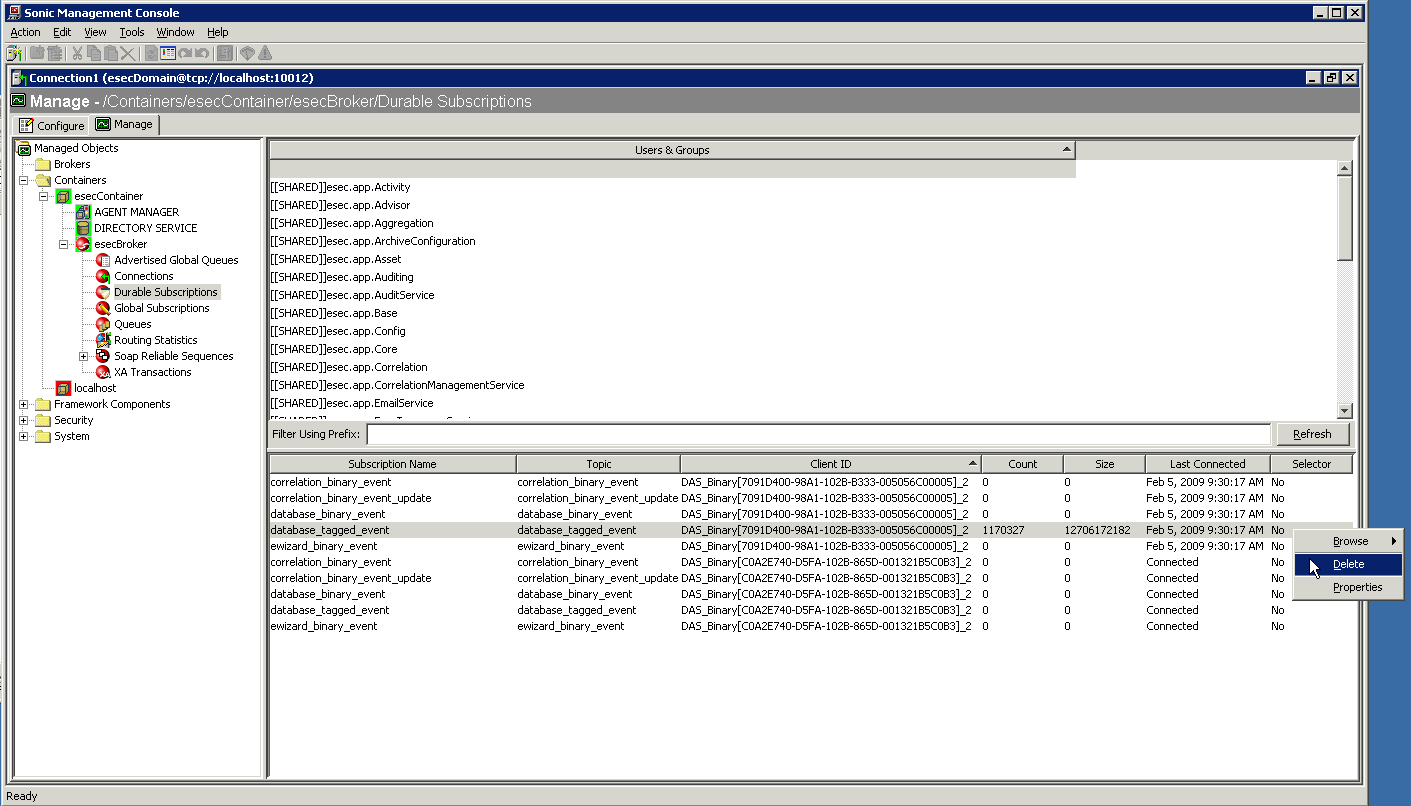Environment
Novell Sentinel 6.1
SonicMQ
Situation
Within Sonic MQ the pubsub.odb file will increase in size from normal 1 GB to well above this size.
Sonic (and JMS buses in general) provide the capability to register for data using a "durable subscription". This means that even if the client that is reading the data goes down (i.e., the process exits), the JMS will hold onto the data that was generated while the process was down and it will provide the data to the process when it comes back up.
The only thing that subscribes in a durable way is the das_binary process on the event channels. You can see how this is done by searching for "#durable" in the das_binary.xml file.
A durable subscription is identified by its UUID. UUIDs are used by the DAS_Binary service in the configuration.xml file to identify the subscriber. Each time das_binary is launched, it registers the durable subscription with Sonic using this UUID. This is how Sonic knows that the new registration is related to a durable subscription that was made in the past and will send this subscriber the data it missed while it was down.
Resolution
The most likely cause of the large Sonic cache file is the presence of, at some point in the past, a das_binary that made a durable subscription to Sonic using a UUID but is no longer reading data from Sonic. This could be caused simply by the UUID somehow changing in the configuration.xml file (user intervention); das_binary may have been moved from one machine to another, thus causing a new UUID to be generated in the new configuration.xml file that was used.
To See your Durable Subscription's you will need to launch Sonic Management Console. Please refer to Tid # 7002753
If you look at the image, you can see a simulated scenario.
Additional Information
If desired, you can reclaim the used space from the unwanted durable subscription. In order to compact the Sonic cache down to a smaller size, do the following:
1. Shutdown Sentinel. Make sure all processes are stopped (in particular, Sonic).
2. Run the following command:
For Linux/Unix: $ESEC_HOME/3rdparty/SonicMQ/MQ7.0/bin> ./dbtool.sh -f ../db.ini /z
For windows: %ESEC_HOME%\3rdparty\SonicMQ\MQ7.0\bin> dbtool.bat /f ../db.ini /z
NOTE: It seems that in order for the command to work properly, you must be in the ESEC_HOME\3rdparty\SonicMQ\MQ7.0 when you execute the command.
Use the following command:
For Linux/Unix: $ESEC_HOME/3rdparty/SonicMQ/MQ7.0/bin> ./dbtool.sh -f ../db.ini /r all
For windows: %ESEC_HOME%\3rdparty\SonicMQ\MQ7.0\bin> dbtool.bat /f ../db.ini /r all
Note: The -r option used to compact the tool may need temporary space to perform. Make sure you have serveral GB of free disk space where Sonic (Sentinel Communication Server) is installed. If space is not available, you may need to perform a delete and re-create.
This clears out the cache and shrinks the size of the Sonic directory down to less than 1 GB.
